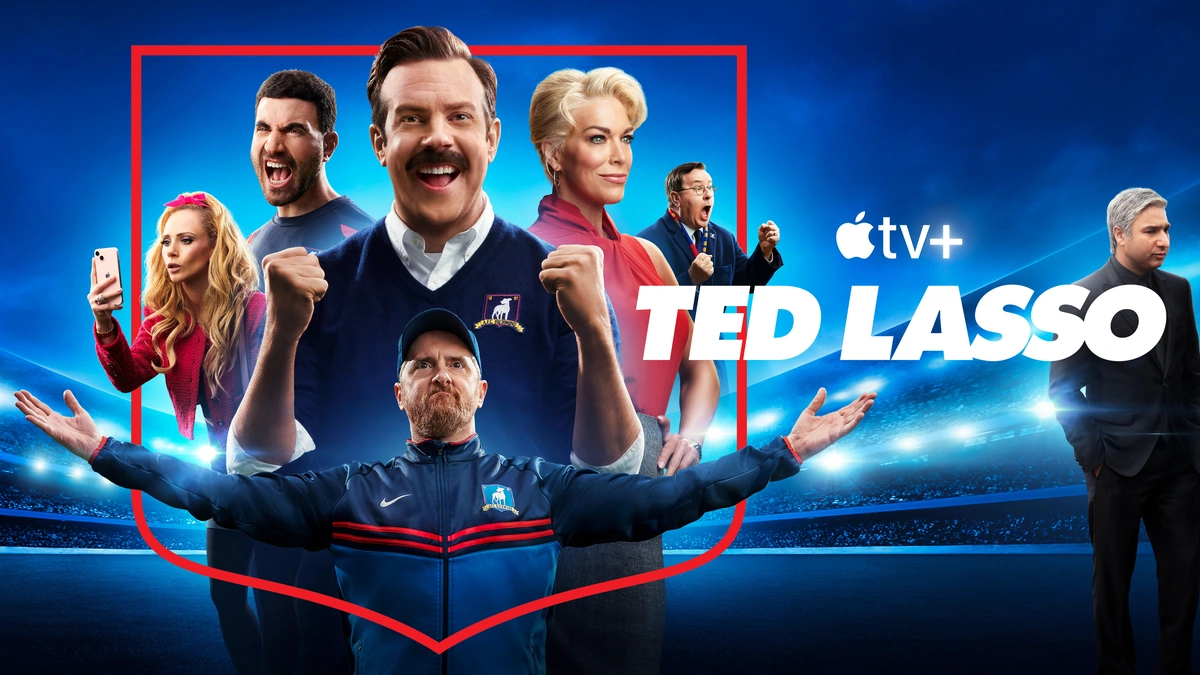Okay, let’s be honest. When Ted Lasso exploded onto our screens, it was easy to write it off as another feel-good comedy. But it quickly became something…more. Something deeper. It wasn’t just about folksy charm and unwavering optimism; it was about human connection, vulnerability, and the messy, beautiful struggle of being a person. So, why did this show resonate so profoundly?
The Unexpected Authenticity in a World of Cynicism

What fascinates me is how Ted Lasso managed to carve out a space for genuine kindness in an era practically defined by cynicism. Think about it: we’re bombarded with negativity, sarcasm, and a constant stream of bad news. Ted Lasso, with his unwavering belief in the good of people, felt almost revolutionary. But it wasn’t just blind optimism. It was a conscious choice to see the best in others, even when they didn’t see it in themselves. It’s the show’s portrayal of mental health and its impact on performance that rings true.
And that’s the thing, right? The show never shied away from the tough stuff. Ted’s own struggles with anxiety and panic attacks were handled with a sensitivity that was both refreshing and deeply relatable. It showed us that even the most seemingly upbeat people can be battling their own demons and that seeking help is a sign of strength, not weakness. The series also highlighted the importance of therapy, which is something many viewers appreciated. But the show went beyond just showcasing mental health issues; it actively encouraged dialogue and provided examples of healthy coping mechanisms.
Redemption Arcs That Hit Different
Ted Lasso isn’t just feel-good; it’s about redemption. From Jamie Tartt’s evolution from selfish superstar to team player to Roy Kent’s journey from cynical veteran to surprisingly insightful coach, the show is full of characters who are given the space to grow and evolve. Let’s be honest — who didn’t shed a tear when Jamie finally acknowledged Ted’s influence? The writers expertly crafted these arcs to be both believable and deeply satisfying. The characters’ transformations felt earned, not forced, which made them all the more impactful.
Roy Kent! Honestly, the man is a walking masterclass in character development. He starts as this grumpy, aging footballer, seemingly incapable of empathy. But slowly, painstakingly, he begins to open up, revealing a vulnerability and a surprising capacity for love and connection. His relationship with Keeley is a testament to the power of communication and mutual respect. And his transition into coaching allows him to mentor younger players, passing on his wisdom (and his colorful vocabulary) to the next generation. Another critical point is character development, and it is masterfully implemented throughout the show.
The Power of Believing (But Not in a Cheesy Way)
Ted’s famous “Believe” sign wasn’t just a cutesy slogan; it was a philosophy. It was about creating a culture of trust, support, and unwavering faith in the potential of others. It was about fostering a team environment where players felt safe to take risks, make mistakes, and learn from each other. And it was about challenging the prevailing win-at-all-costs mentality that often permeates professional sports. The show presents a counter-narrative, arguing that team dynamics and positive reinforcement can be just as important as talent and skill.
It’s not about being naive; it’s about choosing to see the best in people, even when they don’t deserve it. The writers are careful to demonstrate that while optimism and faith are crucial ingredients, they’re not enough on their own. Hard work, strategic thinking, and a willingness to adapt are equally important. The show demonstrates that positive leadership can be a transformative force, capable of unlocking potential and building a stronger, more resilient team.
Beyond the Field | Lessons for Life
What made Ted Lasso truly special was its ability to transcend the world of football and offer universal lessons about life, love, and loss. It was a show that reminded us of the importance of human connection, the power of vulnerability, and the enduring strength of the human spirit. In a world that often feels fractured and divided, Ted Lasso offered a vision of hope and possibility, a reminder that even in the darkest of times, there is always reason to believe. The show also served as an example of emotional intelligence in leadership, showing that the ability to understand and manage emotions is essential for creating a positive and productive environment.
Ultimately, Ted Lasso wasn’t just a TV show; it was a cultural phenomenon. It was a reminder that kindness, empathy, and belief in the good of others can be powerful forces for change. And in a world that desperately needs more of those things, that’s a message worth believing in. Don’t take my word, though. See it for yourself.
FAQ About Ted Lasso
What’s the big deal with Ted’s biscuits?
They’re his way of showing appreciation and building relationships with Rebecca, his boss.
Is Ted Lasso based on a real person?
Not directly, but the character is inspired by various coaches and mentors.
What makes Roy Kent so popular?
His gruff exterior hides a surprising vulnerability and capacity for love.
Why did the show resonate so much?
Its focus on kindness, vulnerability, and mental health struck a chord with viewers.
Will there be a Season 4?
Currently, there are no plans for a season 4, but spin-offs have been discussed.




